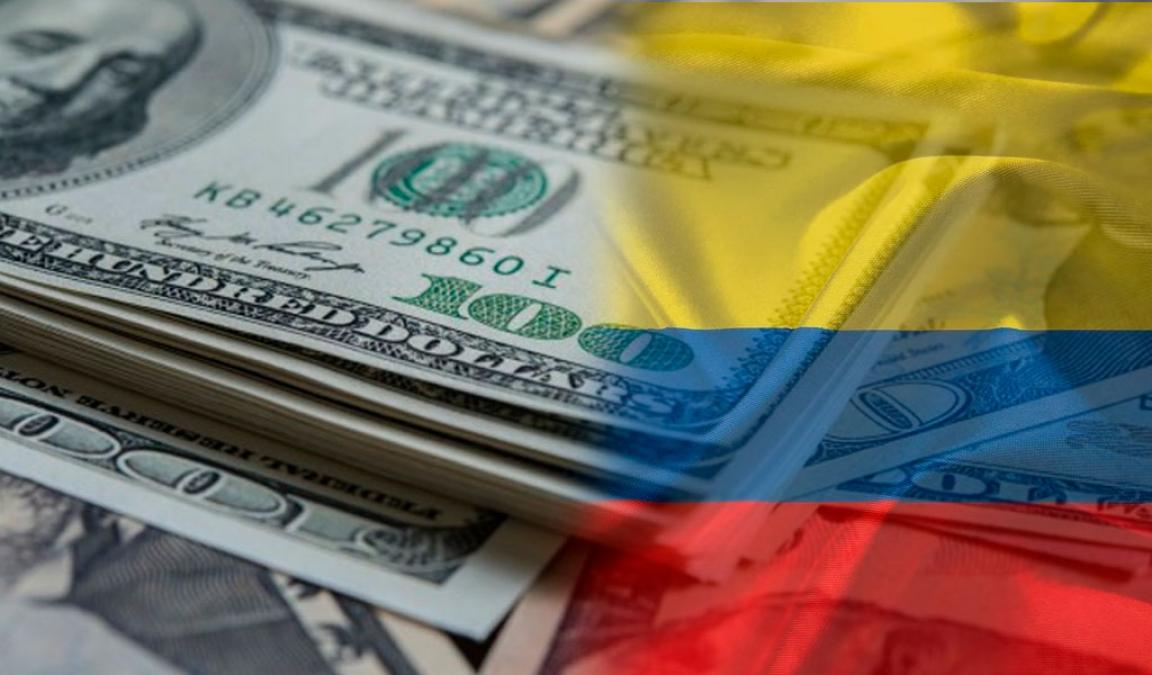RIO DE JANEIRO, BRAZIL – The process of adopting the dollar as the currency in Colombia, known as ‘dollarization‘, is a controversial phenomenon that has remained in the debates of economists in recent years, but especially in recent months with the record prices of the U.S. currency for Colombians.
“Dollarization is usually the result of a situation of macroeconomic instability, particularly hyperinflation. For countries that end up dollarizing to escape hyperinflation, a reduction in the level and volatility of inflation is usually observed, contributing to lower interest rates and ultimately stabilizing the economy.
“The most important cost is the loss of monetary autonomy and the reduced ability of the Central Bank to act as lender of last resort,” explained Andrés Vargas, Ph.D. in Economics and director of the Economics Department at Universidad del Norte.

Neighboring countries such as Panama, Ecuador, and El Salvador already have economies that revolve around the dollar, a currency that guarantees them greater stability and lower and more stable inflation according to their monetary policies.
According to Professor Juan Nicolás Garzón Acosta from the Faculty of Law and Political Sciences of the Universidad de La Sabana, this process occurs under certain circumstances of economic crisis or very high inflation.
Ecuador has had the dollar as its currency since 1999. The measure was taken after a deep economic crisis, which even reached a limit situation, according to Garzón.
“In Venezuela, to cite that case, at some point, they have proposed an official dollarization, although there is already a de facto dollarization; that is, despite the existence of the bolivar, many transactions and operations are carried out in dollars, because it is a more stable currency,” he added.
According to the economic research manager of Banco de Bogotá, Camilo Pérez, one advantage of this phenomenon is the stability it can bring to a country amid high inflation or social and political instability, as in the case of Venezuela.
Also, given the impossibility of issuing, it does not generate excess money that would pressure assets.
“The economy would become a kind of zero-sum game. There would no longer be bi-monetarism (peso-dollar), so the money market would be in equilibrium since there would not be a large number of people exchanging their currency for another,” states Centro de Estudios para la Recuperación Argentina (“Center of Studies for the Recovery of Argentina”).
For the economic research manager of Banco de Bogotá, economies that dollarize “do so because they have economic stability problems”, which can come from several fronts: high inflation or social and political instability. “In the case of Ecuador, dollarization became an anchor that avoids major problems from the economic point of view,” he said.
Despite the above, Perez assured that a very hard blow for an economy that dollarizes is the loss of its monetary policy.
“The main problem of dollarization is losing monetary policy, that is, the Bank of the Republic in Colombia (Central Bank). When you exchange the Colombian peso for the dollar, you no longer have the possibility neither to issue money or to change the interest rate.
“Somehow, in the current inflation cycle, the central bank can move these rates to adapt. Or, for example, when the pandemic arrived, it was able to lower interest rates to stimulate and expand the economy,” Perez explained.
Another problem for him is that foreign trade has certain benefits by having its own currency, such as the Colombian peso in movement.
“For example, amid the significant devaluation in the exchange rate, exporters receive more pesos for everything they sell abroad,” he said.
Édgar Jiménez agrees. He is a professor and lecturer at Jorge Tadeo Lozano University. He added that “it would be a problem” for Colombia to fully depend on an entity such as the U.S. Federal Reserve.
“In favor, it is possible that inflation levels will stabilize, although there is no total guarantee on this issue. Another point would be the ease with which international trade transactions can be carried out,” explained Jiménez.
In the Colombian case, some experts, such as Wilson Rodríguez, professor and researcher at the International School of Economic and Administrative Sciences of the Universidad de la Sabana, state that the dollarization of the Colombian economy is unnecessary and counterproductive.
“From no point of view does it make sense to talk about dollarizing the economy. We have a strict monetary policy; the Colombian Central Bank is perhaps the most responsible and solid institution,” he said.
The director of the International Business program of the Fundación Universitaria San Mateo, Siris María López, assured that this measure might bring other problems, such as the growth of informality.
“Dollarization is due to the country’s inability to maintain the credibility of its economy,” she said.
With information from La Republica

